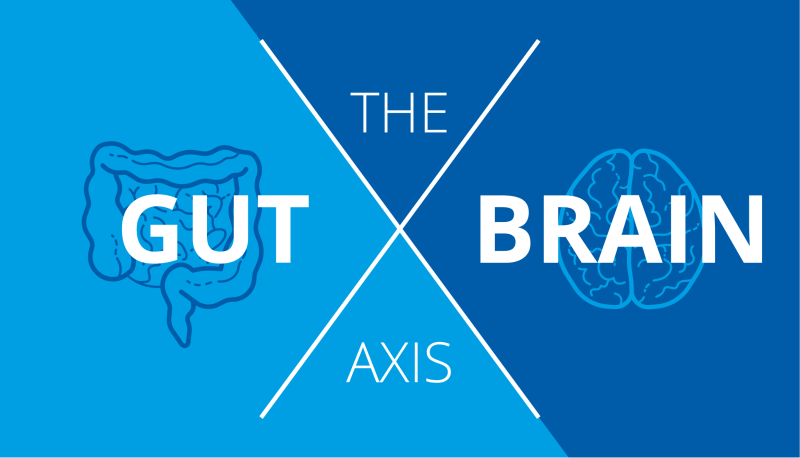by Liza Olkhova
One of the first concepts stating that fermented foods might be beneficial to our health was proposed by a Russian scientist, Ilya Mechnikov, who discovered the endocytosis and pinocytosis functions of macrophages, where these immune cells engulf pathogens. He boldly claimed that consumption of fermented food may increase lifespan in his book titled The Prolongation of Life: Optimistic Studies.
We hear a lot on the news about the roles of prebiotics and probiotics in human health. Along with the rest of commensal microbiota, these bacterial species are well-understood to help with our digestion and shape our immunity. But can gut bacteria also influence our central nervous system function? In recent years, a boom in microbiome research provided us with new exciting insights into how trillions and trillions of microbes thriving inside the human organism may modulate its host’s health.
One of the first and very important studies that looked at the interplay between the microbes and their role in modulating stress hormones (released from adrenal glands when we get ill or stressed) was by Sudo and colleagues in 2004. They have shown that mice that were completely germfree released more of the stress hormone corticosterone (called ‘cortisol’ in humans) than their non-germfree counterparts (so-called ‘specific pathogen-free’). Interestingly, when germfree mice were given Bifidobacterium infantis, their stress hormone levels became less pronounced.
This study has ignited a chain reaction of many more animal studies that included behavioural work and human studies. Probiotic consumption was linked to improved mood, decreased depressive and anxiety scores in humans. The specific microbiome cluster (determined by the abundance of a particular type of bacteria in your GI tract) may not only dictate your emotional responses to what you perceive, but also predict your brain’s structural features as shown in a functional MRI study!
There has also been a clinical trial conducted by Akkasheh and others in patients with major depressive disorder that split patients into two groups: one was taking probiotic-containing pills and the other one was taking placebo. Patients and researchers were blinded to patients’ group allocation to prevent any bias influencing the results. It was discovered that patients supplemented with probiotics for 2 months had greater improvements in their symptoms compared with patients receiving placebo. What’s more, their C-reactive protein levels were also decreased, meaning they had decreased inflammation levels.
Microbiota can also produce or consume the major neurotransmitters – messengers of our brain, such as serotonin and dopamine. Clearly, there are a lot of unanswered questions about the microbiome and its links to major diseases, such as neurological disorders (for example, multiple sclerosis) and a lot more research is needed to show a more defined picture of the gut-brain axis.
Was Mechnikov right in his predictions made over a century ago and could a probiotic a day keep the doctor away?
Interested in learning more? Here are some useful links: https://www.ncbi.nlm.nih.gov/pubmed/15133062 https://www.ncbi.nlm.nih.gov/pubmed/28661940 https://doi.org/10.1016/j.brainres.2018.03.015 https://www.ncbi.nlm.nih.gov/pubmed/26706022
